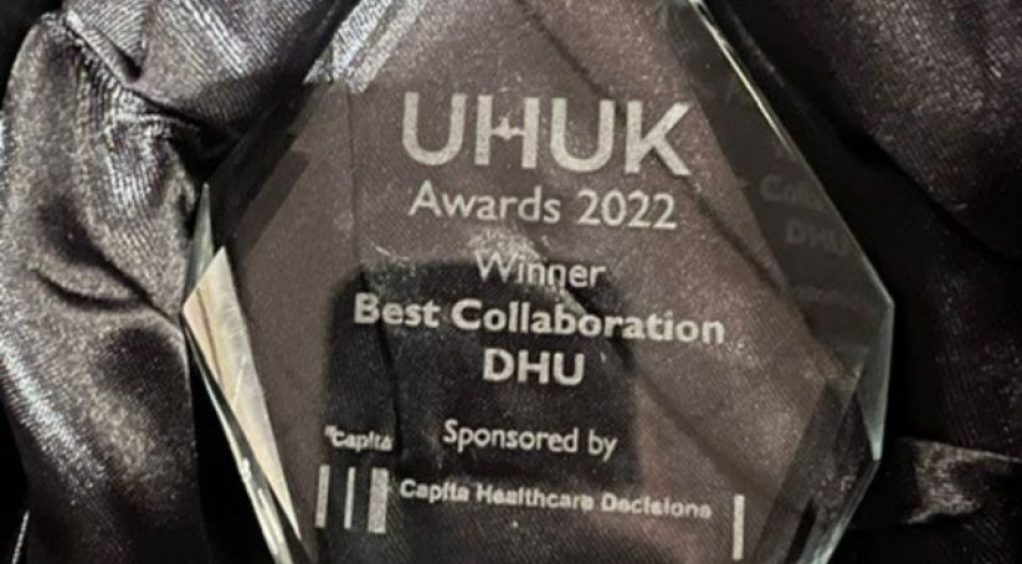DHU Healthcare win national award for Covid treatment plan
A Derbyshire Covid treatment plan, delivered by DHU Healthcare, has won a national award after delivering treatment to hundreds of people in the region.
The antiviral treatments were intended for clinically extremely vulnerable patients who tested positive for Covid-19. They would be assessed and, where appropriate, given a course of treatment to reduce the severity of symptoms, reduce the risk of serious illness and prevent a hospital admission.
The programme went live shortly before Christmas 2021 and went on to assess more than 5,000 patients, more than one and a half thousand of whom received potentially life-saving treatment.
DHU’s Covid Medicines Delivery Unit (CMDU) was awarded the Urgent Health UK (UHUK) 2022 Collaboration Award earlier in October as the initiative became one of only two such programmes that operated in the community rather than within a hospital setting.
Kirsty Osborn is Deputy Director of Urgent Care (Derbyshire) for DHU Healthcare, she said: “Discussions about the programme started in Summer 2021 which was when we mobilised DHU’s team. It resulted in a system-wide collaboration including hospitals, medicines management, GP surgeries, mental health, community services and the ambulance service. We were all committed to providing a service that patients could access quickly to assess their suitability for treatment as soon as possible.
“Most regional systems adopted a hospital-led approach but our Joined Up Care Derbyshire partners agreed that this would put additional pressure on an already challenged acute system. We agreed to provide a community-based option, bringing together ‘Red Hub’ services that DHU already provided at our sites in Chesterfield and Derby, supported by Advanced Practitioners and GPs.
“Not only did this make the best use of existing services, it was also much easier for patients to access. We could easily reach patients who were housebound, in residential areas, community hospitals and even the prison service using a ‘Red Taxi’ and patient transport service.”
A number of different treatments became available either intravenously or in tablet form, depending on a person’s personal circumstances, health issue or current treatment. The treatments work by providing the patient with antibodies that they are unable to produce for themselves, reducing the severity of the symptoms and giving them the ability to fight off the virus themselves.
Kirsty added: “The assessment process is not just about the effectiveness of the treatment, it’s about how it interacts with a patient’s medication, when they tested positive and what condition the patient has. Some may start with mild symptoms but without antibodies, their condition is much more likely to worsen and may result in a hospital admission. This treatment has helped to prevent that from happening, resulting in a faster recovery for the patient and less pressure on our health system.
“When the programme was introduced, there was a lot of talk about how we could adapt and live with the virus. The vaccination programme was the first step, but this works alongside that programme. It gives those most susceptible to becoming seriously ill much more protection, not just in terms of creating a barrier to the virus, but also in terms of fighting off if they succumb to it. I’m incredibly proud to have been involved in this and of the team who have undoubtedly saved the lives of patients across Derbyshire.”



